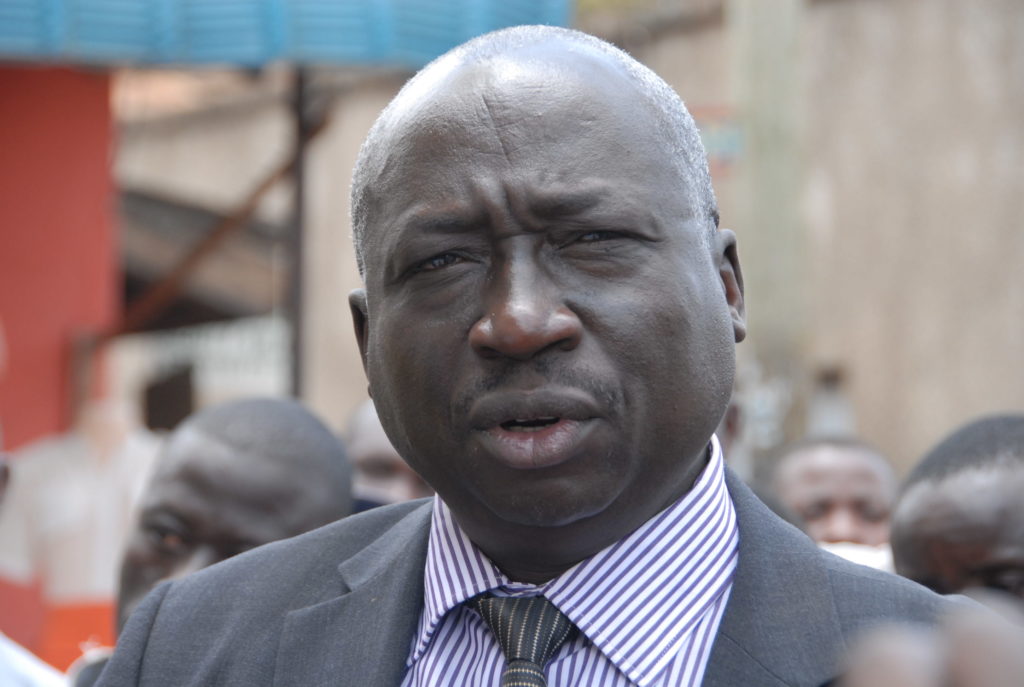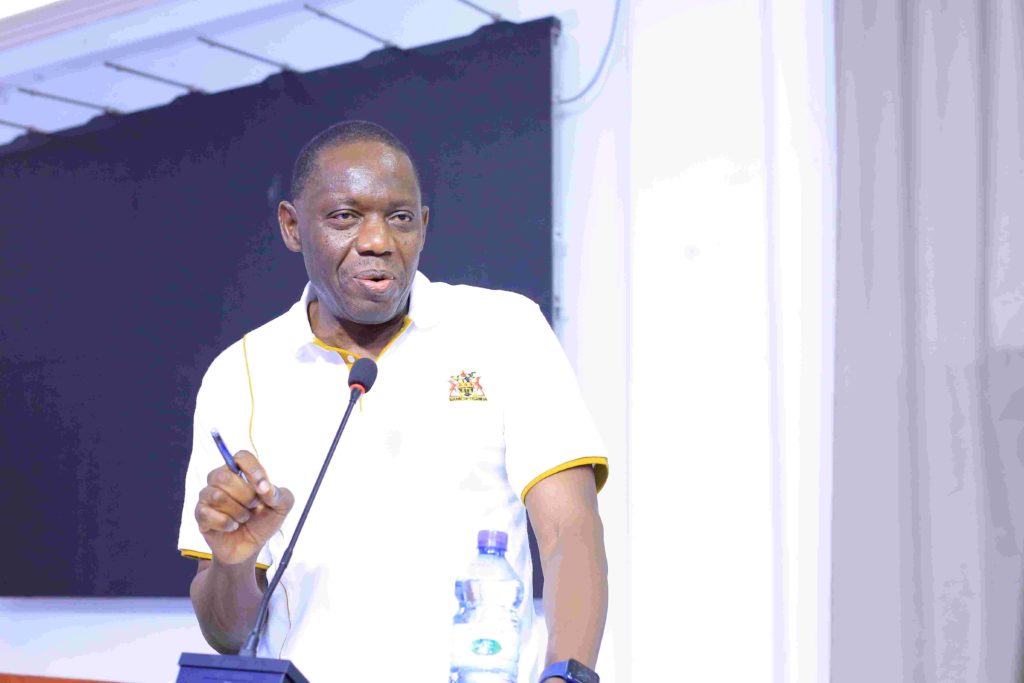Bank of Uganda held a stakeholders engagement in Hoima City on March 22-23 to raise awareness on their mandate, policy actions and accountability to the public for its policies.
They received feedback from the community and sensitised them on financial literacy so that they can manage their money better.
The two meetings at Kolping and HB Hotels were punctuated by suggestions of strategies to stir financial inclusion to boost economic growth and recovery.
Residents were urged to embrace digital money transfer given the benefits and them being readily available across the whole country.
The meeting also discussed issues such as how most banks are struggling with bad debtors and residents losing money through pyramid schemes such as crypto currency.
Others were, a need to increase uptake of treasury bonds and treasury bills services since they are safe, secure and give good interest, recommendations to the central bank to regulate moneylenders and microfinance institutions who charge high interest rates and have grabbed the property of debtors.
Michael Muramira Kyakashari, the deputy resident district commissioner for Hoima, asked the people not to fear reporting counterfeit notes to police and urged that those who surrender them should not be arrested to enable more people to report.
The residents asked the Bank of Uganda to establish a regional currency centre in Hoima City given its economic importance in the economy.
Brian Kaboyo, the Hoima City Mayor, said this will also help the central bank to strategise in helping citizens to benefit from opportunities in the oil sector that currently is in the development phase.
“We can discuss and see how to look for land because the other Bank of Uganda branch is in Fort Portal and Kampala which are the nearest. When there is a currency centre, it helps people to get services easier,” he said.
Phillip Andrew Waboya, the executive director for petroleum investment fund at bank of Uganda, said the issue of establishing a regional currency centre will be considered after a thorough economic analysis and assessment.
The matter of addressing financial savings to Gross Domestic Product which is about 9% compared to Kenya’s 13% also cropped up.
Saving and delaying spending has proved to be a difficult habit to instill in Ugandans and majority of people are living beyond their means which the bank officials and experts said there should be increased sensitisation and awareness creation about.
The economists said for many people to participate in the money economy the central bank should rein in on commercial banks as a matter of prudence to lower and adjust their high interests on loans.
However, bankers said every time Bank of Uganda adjusts the Commercial Bank Rate (CBR) they review and adjust their prime lending rates, accordingly.
A banker at the sidelines dispelled the myth; that commercial banks are enjoying a high interest rate environment, noting that banks also want to grow with people, boost the economy and stop the high default rate on loans.
“Banks do not operate in a vacuum, and they are also susceptible to the same economic cycle.”
Experts say high interest rates on non-performing loans (NPLs), follow a high interest rate environment.
And changes in interest rates affect spending, a downward revision of the CBR reinforces where the country is in the economic cycle and gets credit growth moving, which is the single most important driver of growth.
“Business cannot grow without growing access to credit and lending to the real economy. At the end of the day banks want to lend and high interest rates make it difficult for customers to pay back which must be addressed,” Dr. Lawrence Bategeka an Economist and former Hoima municipality Member of Parliament told The Albertine Journal at the sidelines.
He said the central bank has a pivotal role in adjusting the CBR to influence a range of lending and borrowing rates across the economy.
Michael Ating-Ego, the deputy governor of the Bank of Uganda, said inflation has been controlled.
He urged people who borrow money from commercial banks to pay back to save banks from bad debtors.
“The banks in the process are losing large sums of money,” he said. He said the central bank is undergoing changes like the new series of notes that were printed this year and do not bear the signature of the deceased governor, Emmanuel Tumusiime Mutebile.
“But that does not mean that the old notes are illegal, they are still in circulation,” Ating-Ego said.
Bategeka, who once worked with Bank of Uganda and headed the Economic Policy Research Centre at Makerere, criticised measures the government has taken to tame inflation, adding that they are stifling the economy.
Uganda’s annual inflation eased for the fourth straight month to 9.2% in February 2023, down from 10.4% in the previous month.
Economists have previously argued that inflation is a bad thing because it terminates economic incentives, sends the wrong signal to investors and is intensely disliked by central bankers, who have a nasty tendency of swatting it down by pushing up interest rates and plunging economies into great recessions.
Bategeka said inflation is due to low supply. He also said there is a need to implement sound policies that boost supply including offering incentives to the private sector.
“The private sector as a matter of urgency needs to be helped to access credit at low interest rates to invest and create more jobs,” he emphasized.

Economist Bategeka. Credit: Robert Atuhairwe/The Albertine Journal
He told The Albertine Journal that the high interest rates on loans from commercial banks have been due to government borrowing locally through the Bank of Uganda to fund the national budget.
He said this has made the central bank to compete for loans with the private sector which crowds out potential local borrowers.
The economist explained that because banks have realised the government is a risk free and safe client to lend to, they now find it inappropriate to give loans to local businesses.
He says if at all they do so, it is at a high interest rate which in the end affects businesses from growing and investing.
Bategeka cautions on treasury bonds and treasury bills. He said this would hurt the economy since repayment may not be realised because the government is ‘too’ indebted to repay the interest on them as evidenced in some economies that invested in-treasury bonds and treasury bills.
Dr. Joseph Ryonga, the Member of Parliament for Hoima City West Division, wonders why the government has not intervened on high interest rates charged by commercial banks despite it being a constant complaint suffocating businesses.



